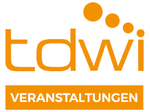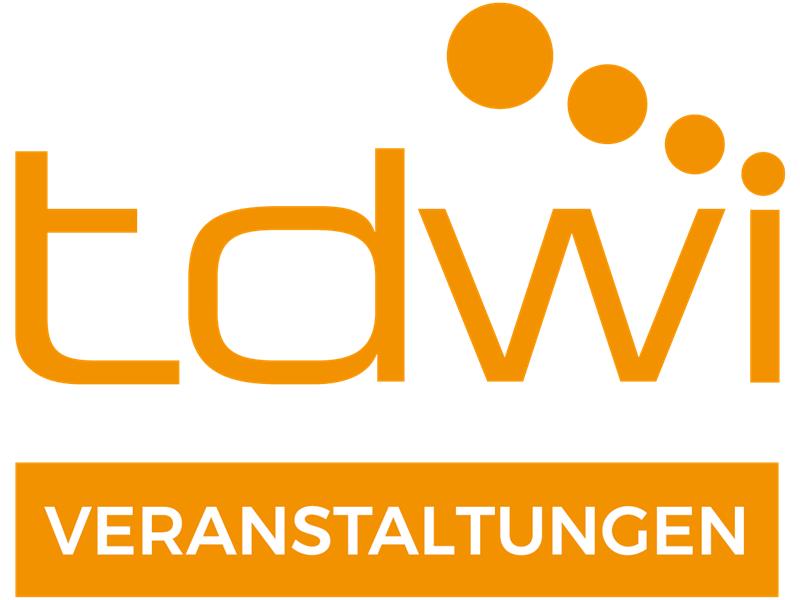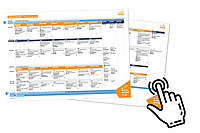
Die im Konferenzprogramm der TDWI München 2022 angegebenen Uhrzeiten entsprechen der Central European Time (CET).
Per Klick auf "VORTRAG MERKEN" innerhalb der Vortragsbeschreibungen können Sie sich Ihren eigenen Zeitplan zusammenstellen. Sie können diesen über das Symbol in der rechten oberen Ecke jederzeit einsehen.
Hier können Sie die Programmübersicht der TDWI München 2022 mit einem Klick als PDF herunterladen.
Thema: Data Lakehouse
- Dienstag
21.06. - Mittwoch
22.06.
In order to succeed in creating a data driven enterprise it is clear that choosing the right data architecture is now critical. This session explores the evolution of data and analytics architecture and looks at what is needed to shorten time to value and create a data driven enterprise. It looks at the pros and cons of data lake, lakehouse and data mesh architectures and asks: Is there a best approach? Is a lot more than this needed to succeed?
Target Audience: Data architects, CDOs, CAOs, enterprise architects, data scientists, business analysts
Prerequisites: Basic understanding of data architectures used in supporting analytical workloads
Level: Advanced
Extended Abstract:
In many companies today the desire to become data driven goes all the way to the boardroom. The expectation is that as more and more data enters the enterprise, it should be possible to understand and use it to quickly and easily drive business value. In order to succeed in creating a data driven enterprise it is clear that choosing the right data architecture is now critical. However, data and analytics architecture has been evolving over recent years to a point where now there are multiple options. Is it a data lake that is needed? Is it a lakehouse? Or is it a data mesh? Should this be the focus or is it just vendor hype to fuel their own interests? What are the pros and cons of these options? Is there a best approach? Is a lot more than this needed to succeed? This session explores the evolution of data and analytics architecture and looks at what is needed to shorten time to value and create a data driven enterprise.
- Data and analytics - where are we?
- Data and analytics architecture evolution
- Architecture options and their pros and cons - data lake Vs lakehouse Vs data mesh
- The shift to data fabric, DataOps, and MLOps to industrialise pipeline development and model deployment
- Using a data and analytics marketplace to putting analytics to work across the enterprise
Mike Ferguson is Managing Director of Intelligent Business Strategies and Chairman of Big Data LDN. An independent analyst and consultant, with over 40 years of IT experience, he specialises in data management and analytics, working at board, senior IT and detailed technical IT levels on data management and analytics. He teaches, consults and presents around the globe.
Vortrag Teilen
The data lakehouse is the new popular data architecture. In a nutshell, the data lakehouse is a combination of a data warehouse and a data lake. It makes a lot of sense to combine them, because they are sharing the same data and similar logic. This session discusses all aspects of data warehouses and data lakes, including data quality, data governance, auditability, performance, historic data, and data integration, to determine if the data lakehouse is a marketing hype or whether this is really a valuable and realistic new data architecture.
Target Audience: Data architects, enterprise architects, solutions architects, IT architects, data warehouse designers, analysts, chief data officers, technology planners, IT consultants, IT strategists
Prerequisites: General knowledge of databases, data warehousing and BI
Level: Basic
Extended Abstract:
The data lakehouse is the new kid on the block in the world of data architectures. In a nutshell, the data lakehouse is a combination of a data warehouse and a data lake. In other words, this architecture is developed to support a typical data warehouse workload plus a data lake workload. It holds structured, semi-structured and unstructured data. Technically, in a data lake house the data is stored in files that can be accessed by any type of tool and database server. The data is not kept hostage by a specific database server. SQL engines are also able to access that data efficiently for more traditional business intelligence workloads. And data scientists can create their descriptive and prescriptive models directly on the data.
It makes a lot of sense to combine these two worlds, because they are sharing the same data and they are sharing logic. But is this really possible? Or is this all too good to be true? This session discusses all aspects of data warehouses and data lakes, including data quality, data governance, auditability, performance, immutability, historic data, and data integration, to determine if the data lakehouse is a marketing hype or whether this is really a valuable and realistic new data architecture.
Rick van der Lans is a highly-respected independent analyst, consultant, author, and internationally acclaimed lecturer specializing in data architectures, data warehousing, business intelligence, big data, and database technology. He has presented countless seminars, webinars, and keynotes at industry-leading conferences. He assists clients worldwide with designing new data architectures. In 2018 he was selected the sixth most influential BI analyst worldwide by onalytica.com.
Vortrag Teilen
Data Warehouse, Data Lake, Date Lakehouse, Data Mesh, …, die Scene überwirft sich aktuell mit neuartigen Namen für analytisch Datenarchitekturen. Doch sind die diversen Ansätze wirklich so unterschiedlich? Muster und Mustersysteme haben sich insbesondere in der Softwareentwicklung als Mechanismus etabliert, komplexe Zusammenhänge in wiederverwendbare Bausteine zu zerlegen. Auch in der IT-Architektur gibt es bereits verbreitete Architekturmuster. Muster strukturieren die Darstellung verschiedener Ansätze üblicherweise in Kontext-, Problem- und Lösungsbeschreibungen. Mustersysteme arbeiten darüber hinaus Überlappungen und Abhängigkeiten heraus. In diesem Vortrag stellen wir ein Mustersystem für analytische Datenarchitekturen vor, methodisch basierend auf DAMA-DMBOK und ArchiMate. Die Struktur wird anhand von Praxisbeispielen illustriert.
Dr. Torsten Priebe ist Dozent für Big Data Analytics an der Fachhochschule St. Pölten und leitet dort die Forschungsgruppe Data Intelligence. Seine Forschungsinteressen liegen im Spannungsfeld von Datenmanagement, semantischen Technologien und Machine Learning. Zuvor verantwortete er den Bereich Business Intelligence bei Capgemini in Wien, arbeitete als Solution Architect bei Teradata und übernahm später die Position des CTO bei Simplity, einem auf Datenmanagement und Analytics spezialisierten Beratungshaus.
Prof. Dr. Carsten Felden ist Universitätsprofessor an der TU Bergakademie Freiberg in Sachsen. Dabei hat er die Professur für ABWL, insbesondere Informationswirtschaft/Wirtschaftsinformatik inne. In der Lehre fokussiert Prof. Dr. Felden auf Business Intelligence und Predictive Analytics. Zentrale Forschungsthemen sind Arbeiten im Bereich der Analytics, des Data Warehousing, der Prozessanalyse, der XBRL und Analysen in IT-Reifegradmodellen. Er ist Vorstandsvorsitzender des TDWI Deutschland e.V. Er publizierte Artikel in internationalen wissenschaftlichen Journalen und Konferenzen und schrieb Bücher zu Themen aus dem Gebiet der Entscheidungsunterstützung. Darüber hinaus ist er als Gutachter für zahlreiche nationale und internationale Journale und tätig. Neben seiner wissenschaftlichen Tätigkeit berät er unterschiedliche Unternehmen zu den oben genannten Themen.
Vortrag Teilen
Vortrag Teilen








